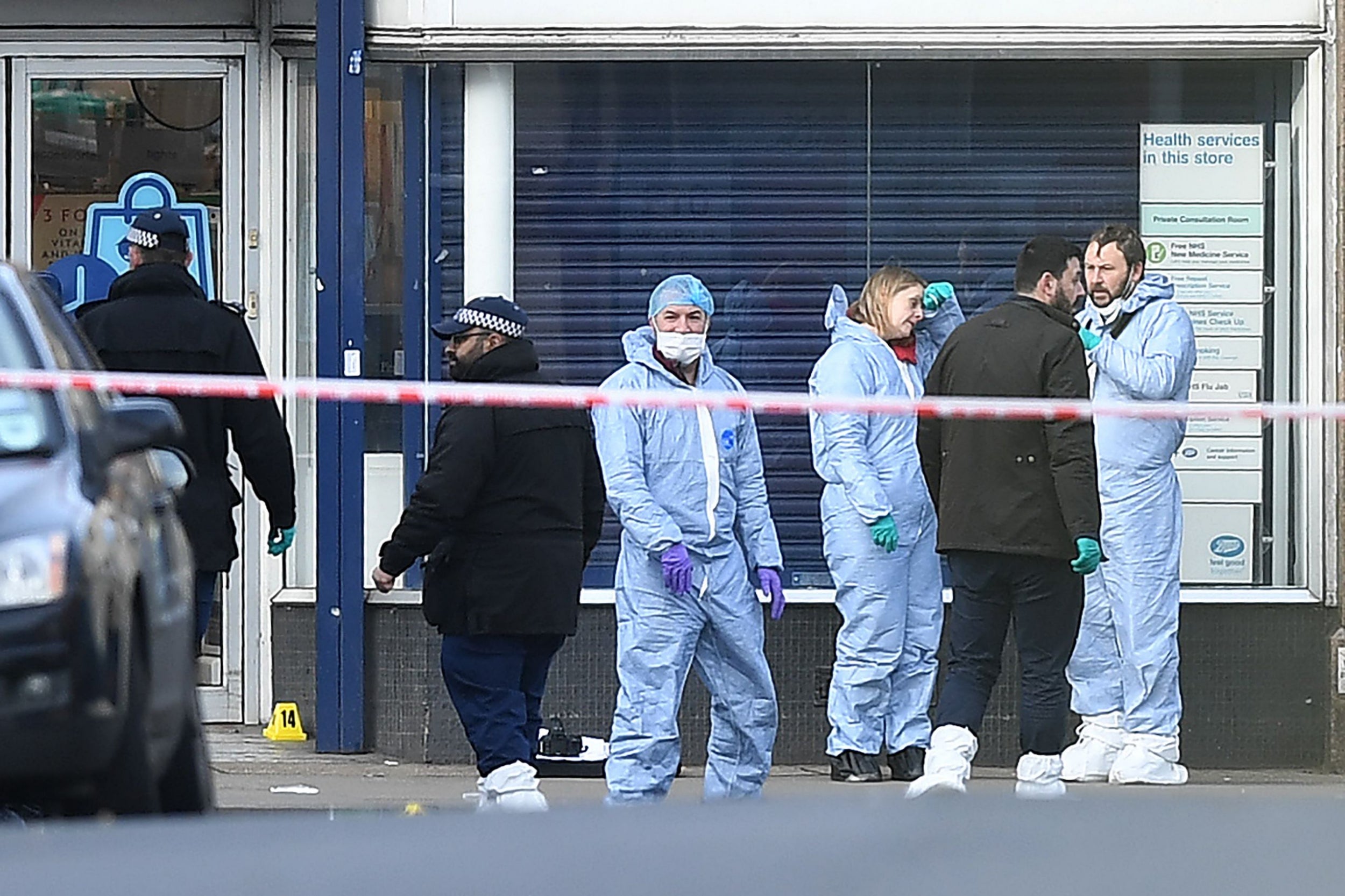Jailing terrorists for longer could be a problem – not a solution
Drive to jail terrorists for longer ignores radicalisation and networking inside prisons, Lizzie Dearden writes

The UK has been hit by three alleged terror attacks carried out by convicted terrorists in the past six months – but one is being erased from government policy.
The first was at Fishmongers’ Hall on 29 November, where former attack plotter Usman Khan murdered two people at a rehabilitation conference before being shot dead by police on London Bridge.
The second was inside the high security HMP Whitemoor prison on 9 January, when a man jailed for plotting to behead a British soldier allegedly attacked a guard with another inmate. Like Khan, the 2017 London Bridge attackers and other Isis-inspired terrorists, they were both wearing fake suicide belts.
The third attack came in Streatham on 2 February, when Sudesh Amman – previously jailed for possessing and disseminating terrorist documents – stabbed two passers-by before being shot at close range by the undercover police officers who had been following him.
That convicted terrorists who had apparently been prevented from harming the public once could achieve their ambitions after being released from prison caused understandable outrage.
The government responded first by introducing emergency legislation to prevent the automatic release of terror offenders like Amman, and by drawing up the Counter Terrorism and Sentencing Bill.
Introduced in parliament on Wednesday, it aims to keep terror offenders in prison for longer with a range of measures including a new type of sentence and increased maximum punishments for some offences.
“The shocking attacks at Fishmongers’ Hall and Streatham revealed serious flaws in the way terrorist offenders are dealt with,” Priti Patel said. “We promised to act and today we are delivering on that promise.”
But what about HMP Whitemoor? A court case continues, making it legally difficult for the government to discuss the incident, but it raises urgent questions over a drive to make extremists spend longer together in jails.

The extent of radicalisation and terrorist networking has long been known by prison workers but it is only due to evidence heard at criminal trials that it has been made public.
Earlier this year, the trial of Mohiussunnath Chowdhury heard how he met the Parsons Green bomber and other extremists while being held on remand at HMP Belmarsh.
He had attempted one attack at Buckingham Palace but was acquitted by a jury, and boasted of his connections to undercover police before being arrested for a new plot following his release.
Chowdhury told his trial that he had been “surrounded by jihadis” in prison and they frequently discussed terror attacks.
His admission should not have been a surprise following the “Three Musketeers” terror plot, which was mounted by jihadis who met in jail in 2013.
In September 2018, The Independent published a warning that terrorist prisoners could “slip through the net” and attack after being released because of poor monitoring, but nothing was done.
In February, the Independent Reviewer of Terrorism Legislation said current conditions inside jails “suggest that keeping prisoners in custody any longer than necessary may expose them to worse influences than if released”.
But now, the government is presenting putting terrorists in jail, together, for longer as a solution.
An inquest into the Fishmongers’ Hall attack – which will consider potential police and probation failings – has not yet commenced, and an independent review of terrorist monitoring practices has not been completed.
So where is the government’s evidence that sentencing practices are the issue? Where is the proof that keeping terrorists in prison for longer will make the public safer?
A former prison governor who works to deradicalise jailed terrorists called the plans “crazy”, amid concerns that extremists will not join programmes without the lure of potential early release.
Professor Ian Acheson, who conducted a 2016 review of Islamist extremism inside jails, called for more focus on how hateful ideology is challenged in prison.
“If this isn’t effectively addressed, the new measures will simply delay further attacks, and might even inspire them,” he warned.
But while the law includes new licence measures and the government is introducing national standards for monitoring released terrorists, there is to be no fundamental review of efforts to stop radicalisation and networking on the inside.
Labour has pledged to scrutinise the legislation but direct opposition risks allegations of putting terrorists’ human rights ahead of public safety – allegations the party will want to avoid after Jeremy Corbyn’s leadership.
And so the Counter Terrorism and Sentencing Bill, perhaps with some amendments, will pass. We must hope that the government’s gamble is the right one.
Join our commenting forum
Join thought-provoking conversations, follow other Independent readers and see their replies
Comments